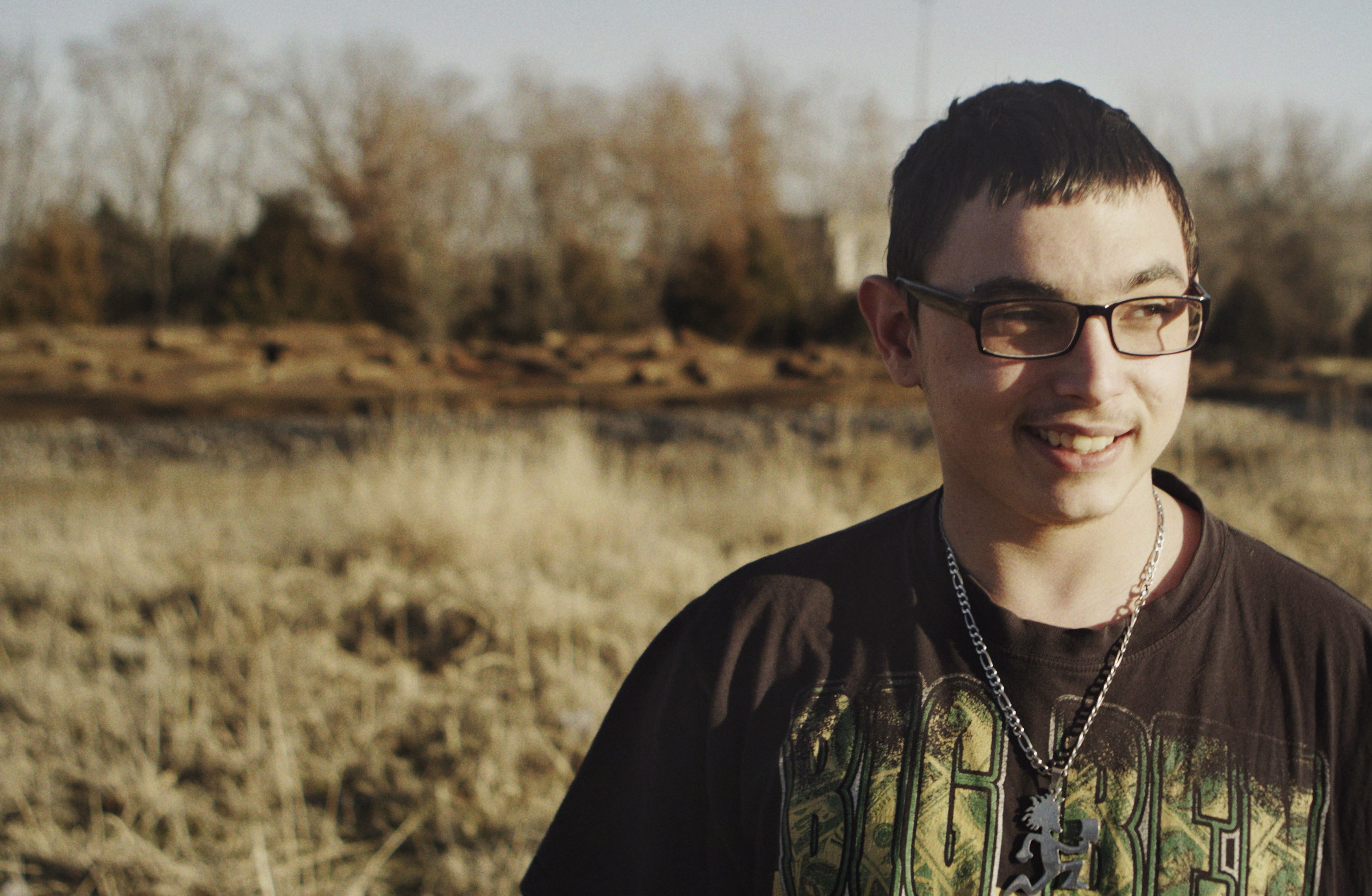A dispatch from the frontlines of rural poverty, this documentary follows three boys (and their families) in the small town of Rich Hill, Missouri. The coal is long gone from this declining hamlet, and with it the economic base that gave families their stability. “We’re not trash, we’re good people,” insists 14-year-old Andrew, who begins the film with the most intact family: two parents and a sister. There’s no money, but somehow they’re scraping by. The situation is more grim for 15-year-old Harley, on various meds and living with his grandmother; and for 13-year-old Appachey, a pudgy, volatile smoker who’s acting out at school, defiant of his single mother.
The trap to avoid here for filmmakers (and cousins) Andrew Droz Palermo and Tracy Droz Tragos is that of red-state ghetto voyeurism, to collect these disturbing images and stories from flyover America, then screen them for our smug coastal concern. Fortunately they had family connections in Rich Hill, one reason for their close, non-condescending access; also they ease the camera back and let these three kids narrate their own stories. Though somewhat appallingly uneducated, they have plenty of self-awareness, which makes the situation all the sadder. “I don’t need an education,” says Harley, who seems barely literate—not someone who could even enlist in the Army. But what he may mean is that Rich Hill offers no prospects for those with an education; he’d only need it someplace else. Social mobility would require leaving.
The pathologies pile up with few surprises, and the filmmakers eschew any context or questions. Theirs is an entirely trees-for-the-forest approach to these youths at risk. Rich Hill puts you in mind of recent feature films like Hellion and Joe, only without the Nicolas Cage father figure to intervene and save these kids. But again—that’s fiction, and this is real life. Harley’s mid-film explanation of why his mother’s in jail gives the doc its most shocking moment, yet one related without tears or swelling music.
This year is, no coincidence, the 50th anniversary of LBJ’s War on Poverty—a subject that Democrats and Republicans will continue to avoid through the coming two elections. To help the inhabitants of Rich Hill would require social spending and taxes; it would also force the acknowledgement of poverty and need within culturally conservative and reliably red-voting districts. But to address poverty, much less wage war on it, first you’ve got to describe it. And that is what this small, admirable film does so well. Runs Fri., Aug. 15-Sun., Aug. 24 at SIFF Cinema Uptown. Not rated. 91 minutes.
bmiller@seattleweekly.com








